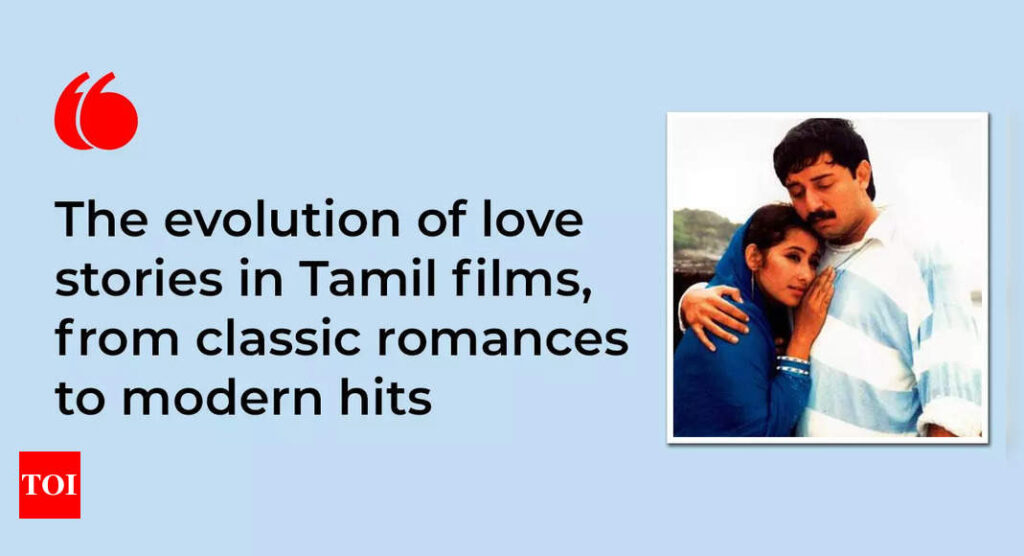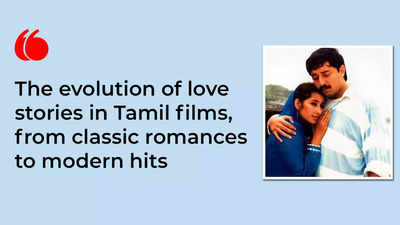The evolution of love stories in Tamil cinema reflects the changing dynamics of society, culture, and cinema itself. From the classic romances of the 1950s to the modern-day hits, Tamil films have continually adapted to the ever-changing expectations of their audience while retaining the emotional core of love.
In the early days, particularly during the 1950s and 1960s, Tamil cinema showcased idealized and conservative portrayals of love, heavily influenced by societal norms. Classic films like ‘Malaikallan’ (1954) and ”Kavalkaran’ (1958) portrayed love as pure, often filled with sacrifices, misunderstandings, and eventual redemption. The heroes and heroines were idealized figures, with their love stories portrayed in a highly stylized, almost dreamlike manner. These early love stories were also often framed within family settings, emphasizing the importance of family approval and societal expectations.
As the 1970s and 1980s progressed, the portrayal of love in Tamil cinema began to evolve. Films such as ‘Raja Raja Cholan’ (1973) and ‘Kalyana Parisu’ (1959) depicted love that transcended the family drama, focusing on the emotional depth and individual choice in relationships. The introduction of more realistic settings, combined with the rising influence of the youth culture, brought about a shift in romantic storylines. Love was no longer just about idealized notions; it began to explore more complex themes, including unrequited love, class differences, and social hurdles.
By the 1990s, Tamil cinema embraced a more modern approach, particularly with the rise of romantic heroes like Vijay, Ajith, and Madhavan. Films like ‘Bombay’ (1995), ‘Minsara Kanavu’ (1997), and ‘Kadhalan’ (1994) presented love stories with a more contemporary feel, moving away from traditional constraints. They often included elements of urban life, individual aspirations, and breaking barriers of caste, class, and societal norms. The portrayal of love became more casual, with a focus on youthful rebellion and exploring relationships outside traditional constraints.
In recent years, with films like ‘Vinnaithaandi Varuvaayaa’ (2010), ’96’ (2018), and ‘Kaatru Veliyidai’ (2017), Tamil cinema has shifted to a more nuanced exploration of love. Modern love stories now focus on complexities such as long-distance relationships, nostalgia, emotional turmoil, and the consequences of love. The representation of love has evolved into something that feels more grounded and relatable, often tackling themes of loss, self-discovery, and personal growth. These films feature more mature narratives, emphasizing the emotional depth of characters and their journeys rather than just the romantic element.
Here’s how Tamil cinema stars reflected on the evolution of love stories in Tamil films:
“In the early days, love stories were simple, where the hero would win the girl with just his charm. Today, love is more complex. It’s not just about romance; it’s about personal struggles, growth, and understanding the person beyond the screen”, shared Rajinikanth on doing romantic dramas.
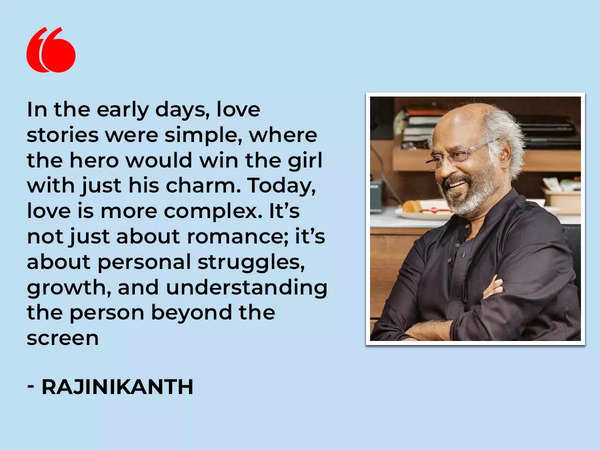
“The audience has changed. They are now more invested in the emotional connection of the characters. Today’s films reflect this with love stories that are less about the external and more about the inner emotional battles of the characters”, Sivakarthikeyan said during the promotion of his film ‘Prince’.
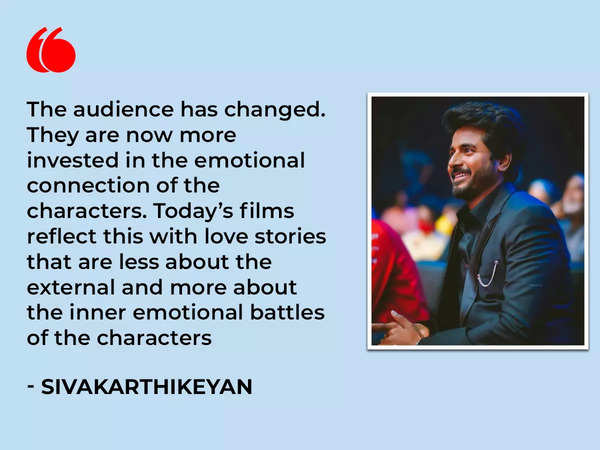
“Earlier, love in Tamil films was a fairytale, almost an escape from reality. But now, films focus more on real emotions, like heartache, compromise, and the journey of self-discovery”, Trisha on doing romantic films.
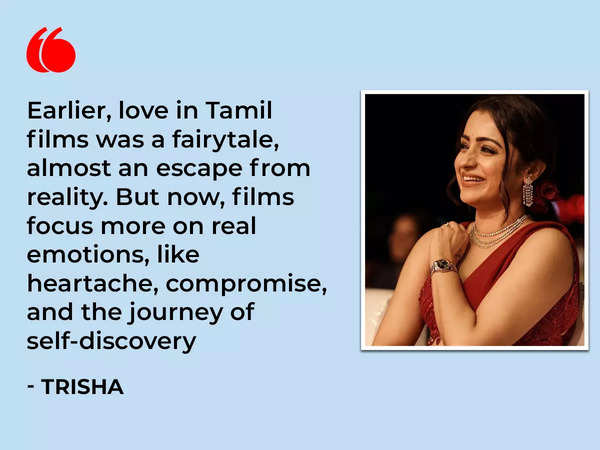
Overall, Tamil cinema’s portrayal of love has evolved from idealized, traditional forms to contemporary, complex relationships. This evolution mirrors the changing social dynamics, technological advancements, and an increasingly globalized cultural context, making Tamil cinema’s love stories more inclusive, relatable, and emotionally resonant.

